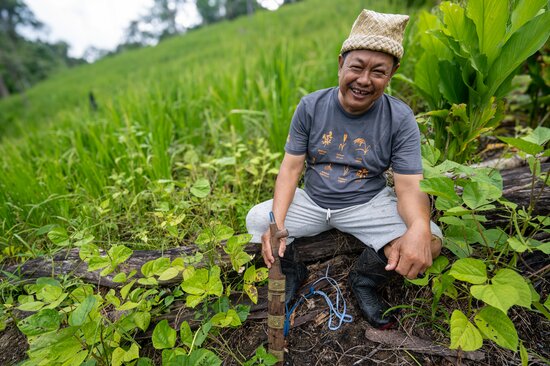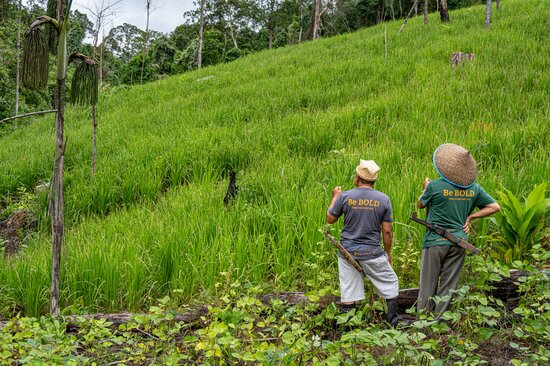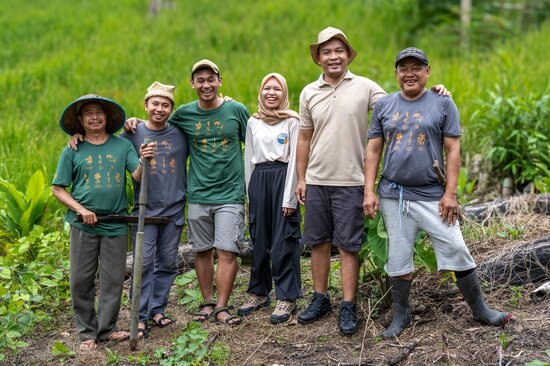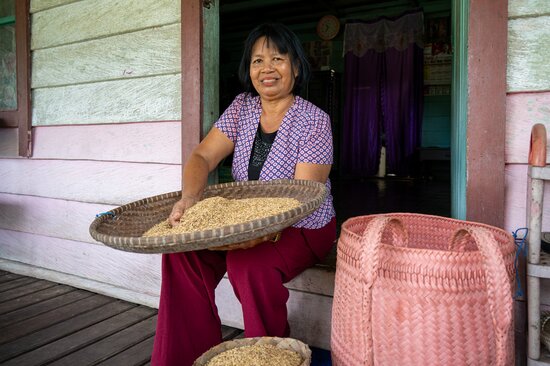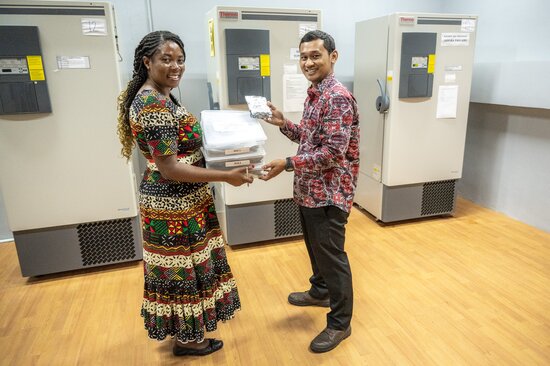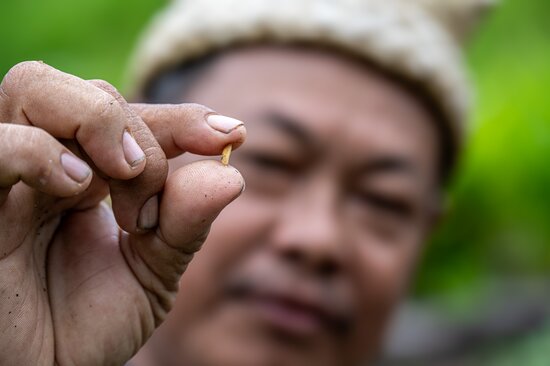Keeping Malan Alive in Central Kalimantan
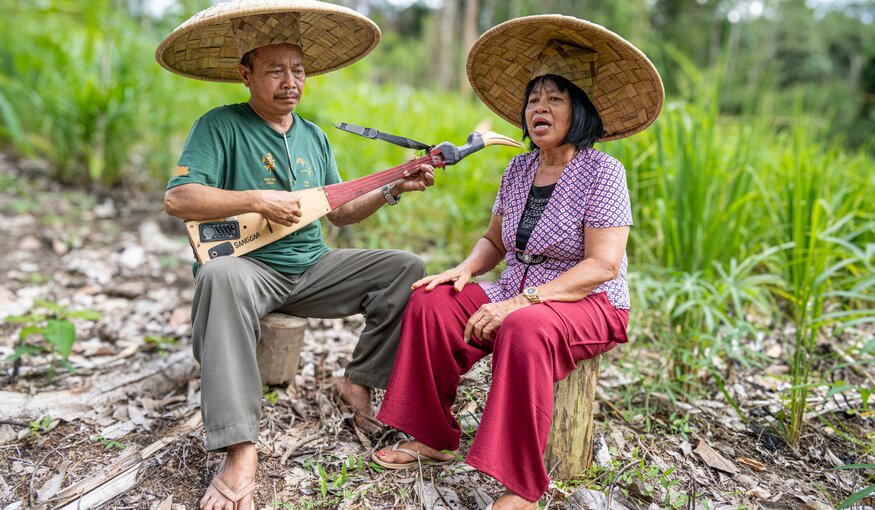
18 June 2024
Papa Dewi looked out at fields covered with a kaleidoscope of crops: rice, cowpea, eggplant, maize, and more. “This is our way of life,” said the Dayak farmer from Indonesia’s Central Kalimantan. “This is malan.”
Malan means “farming” in his native Ngaju Dayak language. “These seeds are an important part of malan and represent the way of life we want to preserve,” Papa Dewi said as he scooped rice seed into his hands. “We must conserve them forever.”
And now those seeds, so intertwined with Dayak culture, have traveled more than 10,000 kilometers to the Arctic Circle to join millions of others on the shelves of the Svalbard Global Seed Vault.
“Malan is based on planting seeds according to local wisdom and ancestral customs,” said Standy Christianto, the manager of the agriculture unit of the Borneo Institute Foundation (BIT). “Seeds are inseparable from the Dayak way of life, yet they are disappearing.”
Dayak communities practice a shifting cultivation or slash-and-burn farming system. Farmers use local seeds obtained from previously stored harvests that have the typical flavors and shapes that they value. Over decades of cultivation under traditional agriculture, Dayak farmers select and preserve the varieties which grow best.
But the Dayaks are struggling to preserve malan.
“Malan is disappearing as traditional land is being planted with oil palm, destroyed by gold mining or made inaccessible by government regulations,” said Standy. “When farmers do get access to land, they often struggle to obtain enough good seed at the start of each sowing season. The diversity, quality and quantity of the seeds they preserved for generations is being eroded … as well as their way of life.”
BIT is helping to stop that erosion.
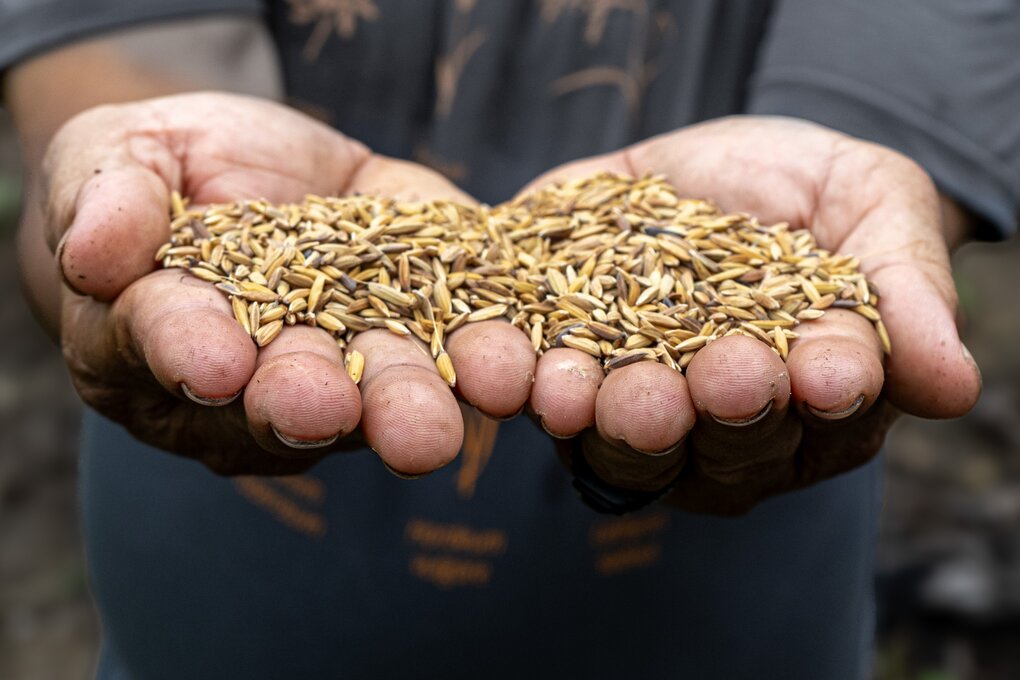
Papa Dewi displays the seeds which he will use for next season’s sowing. Photo: Michael Major/Crop Trust
Building the Seed House – Huma Binyi
BIT is a non-governmental organization that aims to promote the cultural life of the Dayak community. It recognizes the loss of crop diversity in the Manuhing Raya district of Central Kalimantan and has been helping to conserve it.
In 2021, BIT built a huma binyi – a seed house – in the village of Tumbang Samui to store farmers’ seeds. It serves to minimize postharvest losses and conserve high-quality seeds for future cropping seasons. Local Dayak farmers select seeds from their best-performing crops and bring them to the huma binyi for processing and conservation.
“We learned many things about local rice when the farmers brought in their favorite seeds,” said Standy. BIT found lots of different types of rice, each with local names. “These are very special rice varieties that are used for traditional ceremonies by Dayak people, who care about the differences in shape and color of the seeds. If there is a type with wings, they will call it ‘rice wings’. If there are red colored seeds, they call it ‘blood rice’.”
The BIT team selected samples, considering in particular their importance in food security and their use on Dayak traditional ceremonies. The collection stored in the huma binyi consisted of 250 samples from 68 farmers. This included 12 vegetables, two forest fruits, 156 samples of common rice and 20 of sticky rice, 40 of eggplant, 45 of maize and 50 of cowpea.
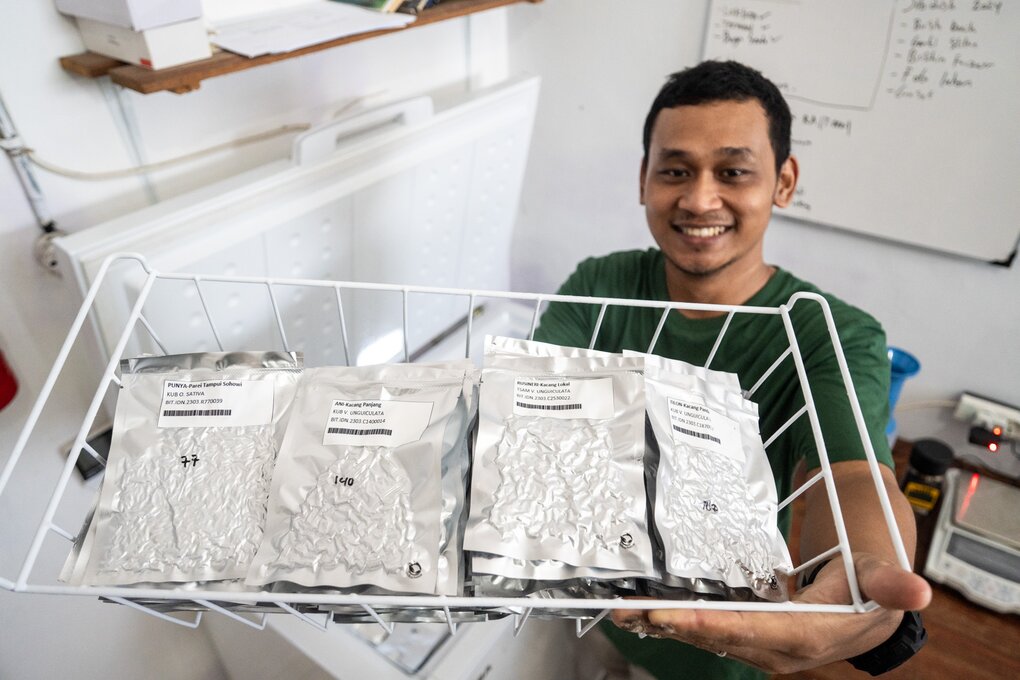
BIT’s Standy Christianto with Dayak seed samples stored in a freezer at BIT’s genebank in Palangka Raya, before shipping to the Svalbard Global Seed Vault. Photo: Michael Major/Crop Trust
Beyond the huma binyi
“The seeds aren't stored in the huma binyi as artwork in a museum. They are used. And they can be lost,” said Beri Bonglim, a project manager for the Crop Trust’s BOLD project. “So in 2022, we launched a project to help the people of Tumbang Samui to regenerate the seeds they conserve and back up copies in the Svalbard Global Seed Vault.”
With the support of BOLD, BIT set up a seed laboratory at their offices in Palangka Raya, the capital city of Central Kalimantan. The laboratory allowed them to process, pack and store the seeds cultivated by Dayak farmers.
BOLD also supports BIT’s efforts to work with the farmers to multiply the seeds in their fields. “The farmers regenerated 377 samples of rice, cowpea, eggplant and maize,” Standy said. “That’s an amazing amount of Dayak crop diversity they were able to save.”
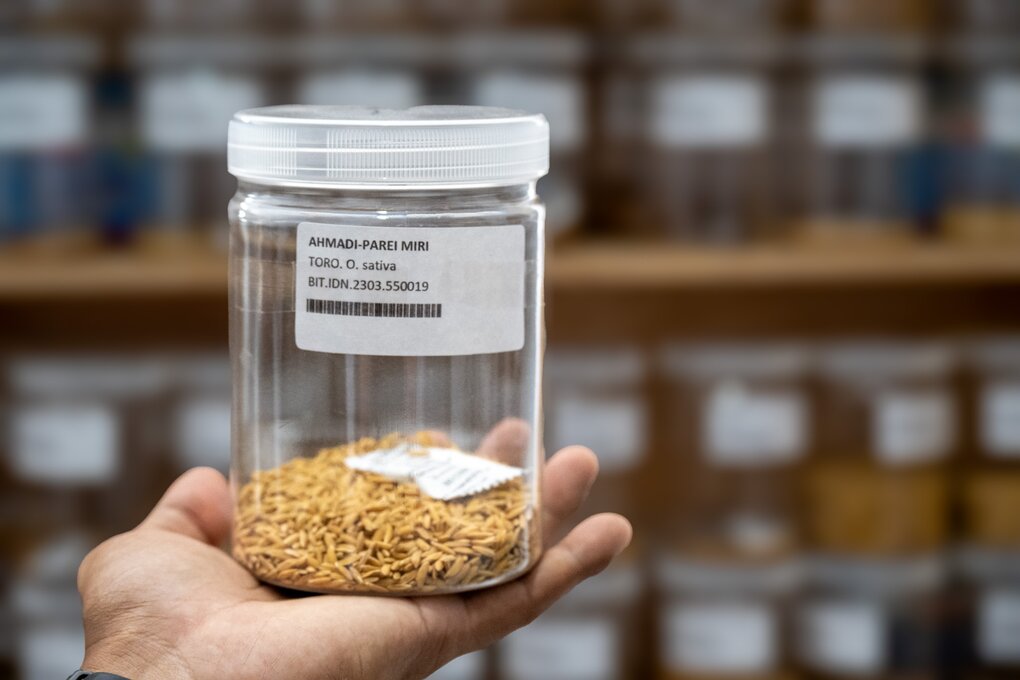
Ahmadi AKA Papa Dewi’s rice seeds are conserved at BIT’s genebank in Palangka Raya. Photo: Michael Major/Crop Trust
Dayak Heritage on Ice
Previously planned for February, BIT’s shipment of 294 samples of Dayak rice, cowpea, eggplant and maize to the Seed Vault arrived in Svalbard in time for the second deposit event of the year on 28 May.
The safety duplication of the Dayak seed became an essential and urgent need in light of how the communities depend on the seeds and the endangered status of the rainforest in central Borneo. “The BOLD Project has allowed BIT and the Dayak communities to multiply the crop diversity heritage of Dayak communities systematically and to safety duplicate them in long-term storage for future generations,” said Beri.
The availability of a steady and diverse supply of seeds is giving farmers like Papa Dewi confidence to farm again. He sees that this work conserves their local seeds through regeneration and conservation and in doing so it is helping to preserve malan, their way of life.


